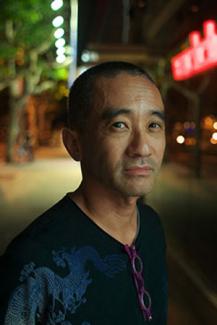Frankie Wong

Contact Information
With a background in social psychology and management, Dr. Wong has expertise in conducting community-engaged research targeting underserved populations with a history of or who are currently using alcohol, tobacco, and other drugs (ATOD) and engaging in HIV-related risk practices. His NIH-funded research focuses on the social epidemiology of ATOD, HIV, and other non-HIV sexually transmitted infections among these populations. Notably, Dr. Wong has extensive experience directing multi-site scientific and implementation science research programs involving academic, governmental, and non-governmental collaborators in the U.S., Panama, South Africa, China, Tajikistan, Vietnam, and Russia. Before returning to academia full-time in 2000, Dr. Wong spent almost 7 years directing health prevention programs targeting immigrants, refugees, and ex-offenders—half of this period, he served in executive management positions.
Dr. Wong’s research is guided by four principles: (1) community-driven and community-engaged; (2) team science; (3) high public health significance with tangible benefits to the participants involved; and (4) capacity building. Thus, he always involves community partners and a multidisciplinary team.
Research Domains
For more than 2 decades, Dr. Wong has been using an intersectionality lens to pursue three lines of research: (1) HIV and other non-HIV sexually transmitted diseases; (2) sexual health; and (3) lessons learned from the two aforementioned areas to build institutional capacity and human capital.
HIV and Other non-HIV Sexually Transmitted Diseases
Dr. Wong is one of the first Western investigators to examine substance use/misuse and HIV-related risks among high-risk men in China. Notably, he focuses on a sub-group of men locally known as “money boys,” that is, men engage in commercial sex with other men. This body of work has informed others in the field on how to conduct research with this difficult-to-engage population, now having the highest incidence and prevalence of HIV.
Today, HIV is considered a chronic disease. Dr. Wong’s research has moved beyond HIV risks to examine living with HIV and its comorbidities (e.g., hypertension). With support from NIH, he has established a cohort of people living with HIV in Hawaiʽi and Philadelphia. Notably, one area of research is focusing on cognitive decline and aging among people living with HIV.
Sexual Health
HIV risks and sex are intricately connected. The concept of sexuality (and sexual mores) is often “culturally dependent.” With the support from NIH, Dr. Wong has culturally adapted an American-conceptualized, individual-based sexual health intervention into a group-based format to reduce HIV stigmas targeting high-risk men in Việt Nam.
Capacity Building
Dr. Wong began his global research in 2000, first in China and South Africa. Since then, he has worked in Russia, Tajikistan, and Panamá and Việt Nam. His collaborators include scientists and educators from multiple disciplines (including epidemiology and medicine), governmental entities, and non-governmental organizations. Dr. Wong has extensive experience working with international healthcare partners to address a myriad of health and social issues.
Ph.D., Social Psychology (major) and Management (minor), Texas A&M University
B.A. (Honours), Psychology, University of Guelph, Ontario, Canada
